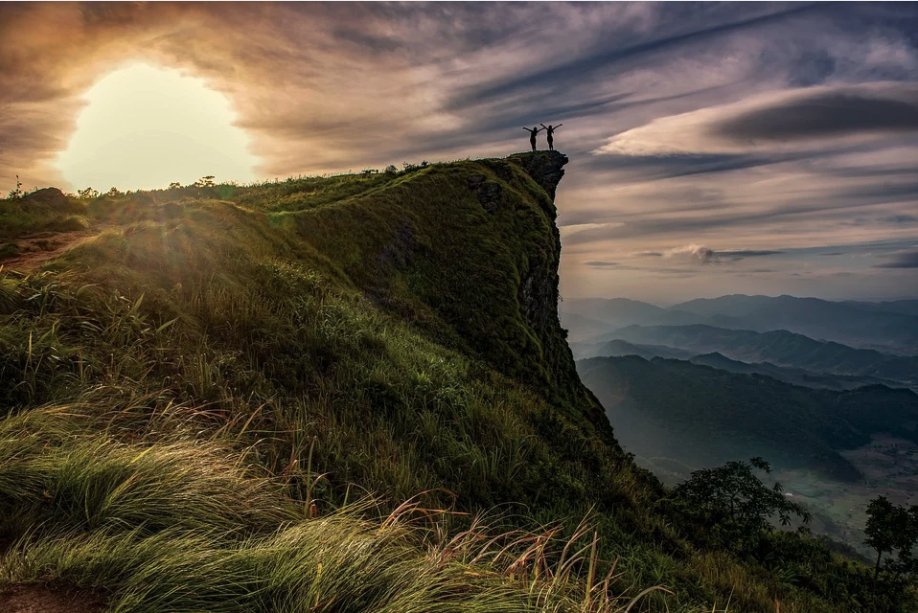
I once told a friend that in order to truly love Montana, it helps to leave it. I had just spent a year in Bristol, England working on a master’s degree. England is pretty. It is historic. But when I returned to Montana, I was hit with a sense of awe.
The mountains, the moon-rise above them, and the dramatic big skies all envelop us in a near-daily sense of expansiveness and wonder. There is a drama in the landscape that leaves me feeling both small and insignificant, and simultaneously intimately connected to the highest peaks and flittering colors of the sunsets.
I first came across this quote from Immanuel Kant (1724 – 1804) in a dusty basement library in England:
“Two things fill the mind with ever new and increasing admiration and awe, the more often and steadily we reflect upon them: the starry heavens above me and the moral law within me.”
I had been studying ethics, so it was the “moral law within me” that I was most interested in. However, Kant’s appreciation of the starry heavens captured my imagination. It must have been so wonderful to look up into the skies in the middle of the 18th century.
Luckily there are places in Montana that give us an approximation of what Kant might have seen. Deep in the wilderness we are relieved from light pollution. There, we get that immediate sense of awe when looking into the skies.
The study of awe
Psychologist Dacher Keltner, the founding director of the Greater Good Science Center at the University of California at Berkeley, has studied awe for years. He tells us that it has real psychological and physiological effects. The act of opening to the feeling of awe helps us drop our judgmental, critical, guarded stance in life. This stance takes a lot of energy. So letting it go relaxes us.
Dr. Keltner also notes that awe invokes humility. Staring into the skies, we cannot help but feel small. With that, our problems also feel small. Our quarrels, our grudges, all of these lose some of the significance we otherwise give them.
Awe also shifts us to a collaborative state of mind. As our self-centered guardedness declines, we more easily connect with those around us. We also might feel some of the immense interconnectedness that great Buddhist philosophers have insisted are at the heart of our existence. Not only are we small, but we are small together.
Physiologically, it quiets our brain’s default mode network (DMN), which also happens with meditation. I’ll write more about the DMN in the future. For now, I think we can see it as a key part of our thinking brain. It seems to be involved in a lot of our ruminating, or thinking over and over about things. Quieting it is associated with calm, focus, and even peace of mind.
Lastly, having a sense of awe can reduce inflammation according to a 2015 study in the journal Emotion. This makes sense, as many negative emotions are associated with both psychological and physiological stress and inflammation.
Feeling awe today
In my daily life at work in front of a computer, awe can be hard to find. Luckily, there are still ways. I’m lucky to have a window near my desk that looks out into my back yard. Just looking out and seeing nature changing can bring a sense of awe.
Even now, as Missoula is blanketed in snow, there is life. I see squirrels hopping along the fence. One seems to be carrying a rotten apple (how old might that be?). And even in the baren trees, birds come to sit and watch over the land. Once, a large hawk even landed on the telephone pole outside my window right here in the heart of Missoula.
Awe with a kiddo

Having a toddler is also wonderful for experiencing awe. On our daily walks, again through city streets, we keep an eye out for any wild creatures. My child’s joy at seeing even a magpie reminds me of the wonders of my own childhood. And there are occasional deer and ducks and geese. All of these elicit awe from my two-year-old.
Research done at Stanford University has shown that kids and adolescents need regular playtime, downtime, and family time (PDF for short). Having unstructured play allows the mind to expand and incorporate awe-inspiring experiences. Even when we don’t see deer, my child can play with them in her mind’s eye. She can pretend to be a wolf or troll from her favorite nursery tales, chasing the deer and/or being chased in return.
This sense of play and curiosity is also key to creativity in kids of all ages. In one study of more than 400 high schoolers, those who reported a greater sense of curiosity about the world did better in normal school tasks.
Awe as an adult

My wife and I also plan to backpack more this year. We made it out once last year and certainly experienced awe. In Missoula, we are just 10 minutes from a number of extraordinary wilderness and national forest areas.
Nature has been shown to be very beneficial. It has even been prescribed by psychologists in the UK for people dealing with mild depression. Short walks can quickly bring calm. Long, immersive journeys can bring both deeper and longer-lasting peace, calm, and awe.
For those more focused on being inside, great music, immersive movies, and even virtual reality can also bring awe to our adult lives. If you feel yourself being awe-deprived, try incorporating some or more of these in your life.
And of course, looking as Kant did at our moral law within can bring its own sense of awe. For me this means meditation. As I sit quietly, my inner world opens. Like a long hike, this can be difficult at times. But, like a long hike, it tends to end in a great sense of wonder and joy.
 Justin Whitaker, Ph.D., holds a doctorate in Buddhist ethics from the University of London. He has given lectures, and taught Buddhist studies and Philosophy at Oxford University, the University of Hong Kong, the University of Montana, and at Antioch University’s intensive study-abroad program in India. A certified meditation teacher, he is a regular contributor to Patheos.com, and Senior Correspondent for Buddhistdoor Global. He lives in Missoula with his family.
Justin Whitaker, Ph.D., holds a doctorate in Buddhist ethics from the University of London. He has given lectures, and taught Buddhist studies and Philosophy at Oxford University, the University of Hong Kong, the University of Montana, and at Antioch University’s intensive study-abroad program in India. A certified meditation teacher, he is a regular contributor to Patheos.com, and Senior Correspondent for Buddhistdoor Global. He lives in Missoula with his family.
